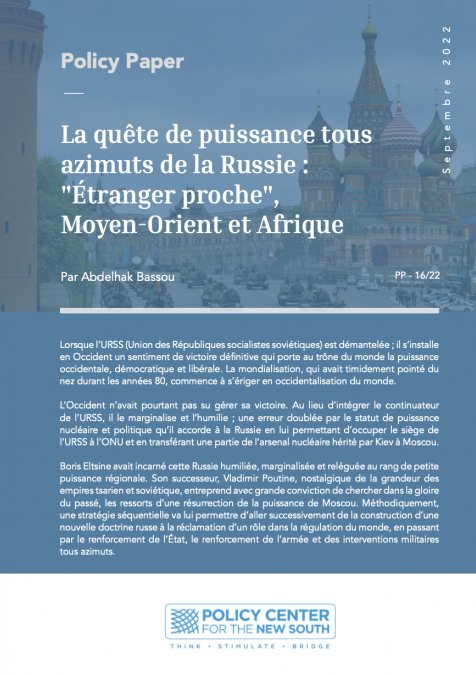عرفت القارة الإفريقية تنظيم عدد من الانتخابات الرئاسية خلال السنة الفارطة كما تم تأجيل عدد منها كذلك لهاته السنة، ويأتي ذلك وسط تداعيات جائحة كورونا التي ضربت معظم الدول الأفريقية. من بين مراحل العملية الانتخابية، هناك مرحلة أساسية وهي تعبئة الموارد. واجهت الدول الأفريقية دائمًا صعوبات في تعبئة الموارد لإجراء الانتخابات في الظروف المثلى. وبسبب جائحة كوفيد19، تمت إعادة تأهيل معظم ميزانيات الدول الأفريقية من خلال قوانين المالية التصحيحية أو من خلال تمكين القوانين التي تمنح صلاحيات كاملة للسلطة التنفيذية في الخيارات والتوجهات التي سيتم تحديدها في مواجهة الوباء. من الواضح أن الانتخابات لن تكون في نفس المركب عندما يتعلق الأمر بالأولويات في التخطيط المالي. وبالتالي، فإن التحدي المتمثل في تعبئة الموارد لإجراء الانتخابات بحلول الموعد النهائي لا يزال يمثل تحديا هاما. لتسليط الضوء على المخاطر، تُجرى غالبية الانتخابات في إفريقيا في عامي 2020 و 2021 في البلدان التي تشهد صراعًا أو الخارجة من الصراع، ولا سيما بوركينا فاسو وبوروندي وجمهورية إفريقيا الوسطى وكوت ديفوار، إثيوبيا والنيجر والصومال. تواجه هذه البلدان أزمات ناجمة عن حركات التمرد المتطرفة المسلحة وتحديات بناء رؤى وطنية شاملة. لذلك، فإن الصلة الوثيقة بين الحكامة والأمن في أفريقيا ستكون أكثر وضوحا في هذا السياق. فكيف يتم ضمان الترابط بين الانتخابات والأمن والتنمية؟ ما هي العوامل التي تخاطر بتقويض العملية الانتخابية في أفريقيا؟ وكيف تشكل المخاطر الأمنية تهديدا لإجراء العملية الانتخابية؟ ثم هل إجراء الانتخابات في مثل هذا السياق من الأزمات (الصحة والأمن) يساعد في تخفيف التوترات السياسية والاجتماعية والأمنية أم أنه يغذيها ؟ ما هو تأثير تأجيل الانتخابات على الاستقرار في المنطقة ؟ هل يمكن أن تحل الانتخابات القادمة المشكلة أم أنها تتطلب عملية سياسية لا تقوم فقط على الانتخابات ولكن على المصالحة الوطنية أو الوساطة من قبل الاتحاد الأفريقي أو الأمم المتحدة؟ يمثل وباء كوفيد 19 تحديًا إضافيًا للعمليات الانتخابية في إفريقيا. هناك مخاوف في بعض البلدان من إجراء الانتخابات، بينما من الضروري في نفس الوقت ضمان سلامة المواطنين. مع التهديد المنتشر لوباء كوفيد 19 ، هل سيستمر المجتمع المدني والسكان ككل في حشد جهودهم على الرغم من التهديد الصحي؟ ماذا عن المشاركة السياسية لفئة الشباب والنساء في الانتخابات الإفريقية؟ هل أثر الوضع الصحي على مشاركتهم؟ هل تشير الأرقام إلى بزوغ وجه جديد أكثر إدماجا للقارة الإفريقية؟ ثم ماذا عن مواجهة النزاع المسلح والجهود الواضحة بشكل متزايد من قبل الجهات الخارجية ووقعها على الانتخابات في إفريقيا؟ ما هو دور الأجهزة الأمنية وقادة المجتمع المنتخبين والمؤسسات المشاركة في إجراء الانتخابات في التعامل مع العنف الانتخابي؟ انطلقت الحملات الرئاسية في معظم الدول الأفريقية فيما منعت بعض الدول التجمعات ليتجه مسؤولو الحملات الرئاسية والأحزاب الأفريقية الى وسائل الأعلام والتواصل الاجتماعي للتواصل مع الناخبين وتوصيل صوتهم عبر المنصات المختلفة وفقا لتداعيات الوباء. مع اتصال القارة بالإنترنت، يزداد خطر التلاعب الرقمي، بشكل أساسي من خلال وسائل التواصل الاجتماعي. كيف يمكننا التعامل مع هذا التهديد الذي يبدو أكثر خطورة لأنه غالبًا ما يمر دون التدقيق في تداعياته، خاصة الأخبار المزيفة؟ المسيرة: إيمان لهريش، مسؤولة عن البرامج بمركز السياسات من أجل الجنوب الجديد المتدخلون: خالد الشكراوي، باحث بارز بمركز السياسات من أجل الجنوب الجديد عبد الحق باسو، باحث بارز بمركز السياسات من أجل الجنوب الجديد












